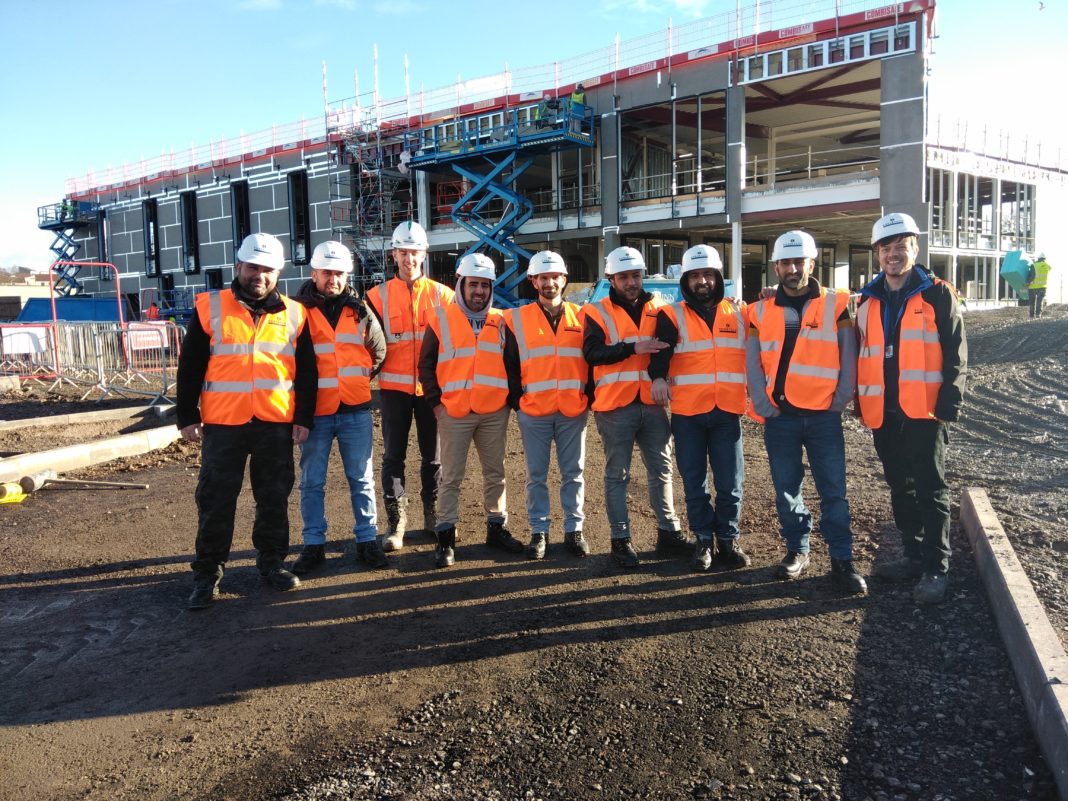
SKILLED and experienced resettled refugees living in Scotland – who could help tackle the nation’s construction skills shortage issue – are working as fast-food delivery drivers, Project Scotland has learnt.
Due to Arabic not currently being amongst the fourteen different voiceover options available for the test required to obtain a CSCS operatives card, many struggle to obtain the certification proving they are legally entitled to work in the UK and have the appropriate training and qualifications to work on sites.
However, new funding of £72,930 from the Scottish Government and the EU Asylum, Migration and Integration Fund has been awarded to Dundee City, Clackmannanshire and Fife Councils and WEA Scotland to help refugees across Scotland into careers in the industry through the creation of a bespoke health and safety course and an Arabic voiceover for the operatives test.
Speaking to Project Scotland, Kirsty Forrester, senior adult learning worker at Dundee City Council, told how previous pilots across Scotland, which aimed to get Syrian construction workers into the industry, failed due to issues with test translators being unable to convert English construction-specific terms into Arabic. Under the new plans, the dedicated voiceover would be certified by the relevant authorities to ensure it contains no errors.
“A lot of the people who have arrived through resettlement schemes are highly skilled tradespeople,” Kirsty said. “We have observed that most of the men finished school after primary, as they tend to go into work rather than high school (in Syria). So, trying to put them into classrooms to learn English in a formal setting is like trying to put a square peg in a round hole. These are guys who are practical; they just want to get out onto sites.”
Kirsty revealed that many of the refugees who have arrived since 2015 have had to resort to delivering fast food in order to gain employment. Their experience of working on infrastructure projects in Syria counts for little in job interviews due to their lack of English and British qualifications. Kirsty added this is something that impacts them mentally, as construction work in their homeland would see them provide comfortably for their family.
“When we told them (in 2018) that we were going to pilot a health, safety and construction course and that they may get jobs in Scotland’s construction industry, they got so excited,” she said. “It was interesting that their previous attendance at English classes was really poor, but as soon as we did the trial construction course there was a 100% attendance. They felt we were giving them a future, and they wanted to give back to Scotland.”
Supported by trained English teachers, the original course saw lecturers from Dundee & Angus College drafted in to handle the construction teaching, with Kirsty revealing that the lecturers were ‘delighted’ with what they saw and confident the refugees could transition over onto Scottish sites effectively – with all attendees successfully passing the IOSH safety test.
However, it all fell down when obtaining the operatives card, with Kirsty saying many could read the question but were unable to decipher the grammar and ultimately often ended up answering the opposite of what the question asked.
The new course will see the local authorities involved collaborate with WEA Scotland, Dundee & Angus College and Forth Valley College, as well as CITB to create additional course materials to support the delivery of the IOSH health and safety test to adult learners who do not have English as a first language or are native speakers with literacy and numeracy barriers to their learning. Importantly, this test, which is required to be passed prior to sitting the operatives test, will be undertaken in English.
“There’s no point being able to answer the questions in Arabic, if, when you’re on a building site, someone shouts ‘HEIDS!’ and you don’t know to duck!” Kirsty explained. “We feel that it is essential that the health and safety test is taken in English and that clients understand written and vocal instructions in English. We need to know they will definitely be safe and not be a risk to anyone else on site.”
Once written, the course will be piloted with refugees in the three local authority areas, as well as nationally through an online pilot course – with the hope that participants will all be in work by early 2022. Partners will then tweak it up until December 2022, before it is shared with every other local authority across the UK and published for free online.
CITB’s customer engagement director (Scotland), Ian Hughes, said that he believes the ‘fantastic’ scheme will go beyond just benefiting construction. Speaking to Project Scotland he said, “This fantastic scheme will ensure that construction companies in Dundee, Fife and Clackmannanshire will soon be able to draw on the skills and experience of a fresh pool of talent in the form of recent arrivals from Syria.
“We know that many refugees want to work hard, and in some cases their skills aren’t being utilised due to the language barriers they are having to overcome, so this scheme will benefit both them, construction companies, and the wider economy.”
With the individuals set to begin their training, Kirsty added that she has hopes the industry will provide opportunities for them to come and visit live construction sites and also have workers come in to share their experiences and skillsets.








